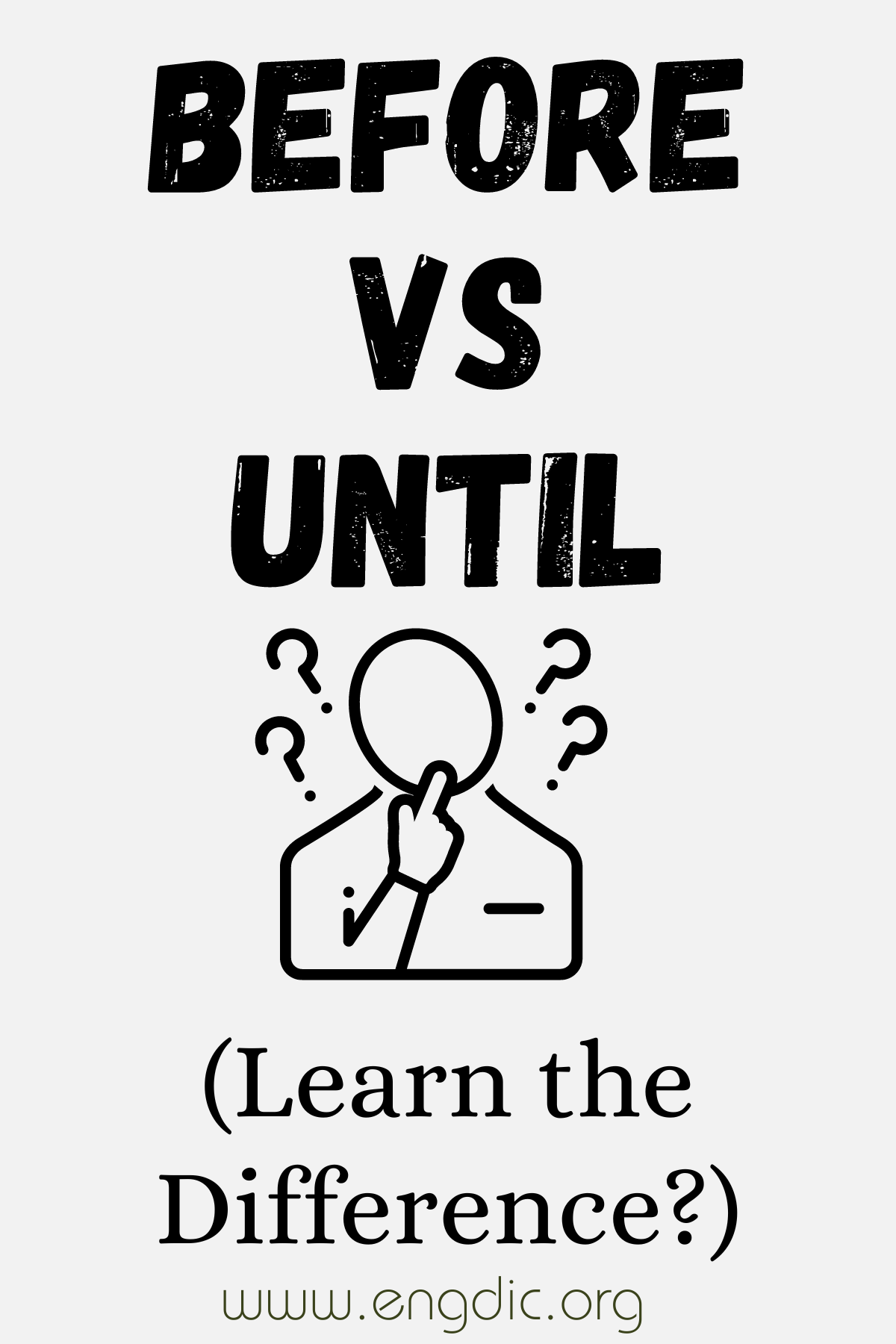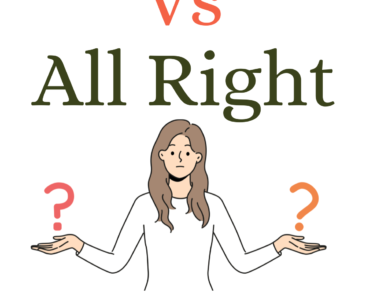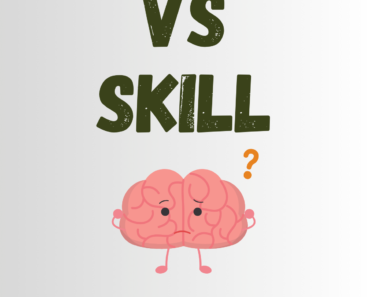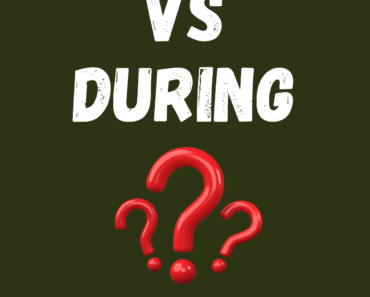“Before” and “until” have distinct temporal meanings.
- “Before” denotes an event occurring earlier than another, providing a reference point in the past, future, or an ordered sequence. For example, “We should finish before sunset.”
- “Until,” on the other hand, defines the point up to which an event or state continues. It implies the duration leading to a specified endpoint. For instance, “He will wait until noon.”
Understanding their distinct temporal nuances is crucial for clarity in communication, ensuring that events are framed within accurate time boundaries.
Before
- Definition: “Before” is a preposition, conjunction, or adverb indicating an event that happens earlier than another in time or sequence.
- Usage:
- Preposition: Indicates an event occurring earlier. Example: “We met before lunch.”
- Conjunction: Links a preceding event to a subsequent one. Example: “Finish the task before you leave.”
- Adverb: Describes an earlier occurrence. Example: “I’ve seen this movie before.”
Until
- Definition: “Until” is a preposition or conjunction indicating the duration leading to a specific point in time or occurrence.
- Usage:
- Preposition: Shows duration up to a point in time. Example: “The store is open until midnight.”
- Conjunction: Links the duration of an action to a particular time limit. Example: “Stay here until I come back.”
By understanding “before” and “until,” one can accurately describe the temporal relationships between events or actions.







